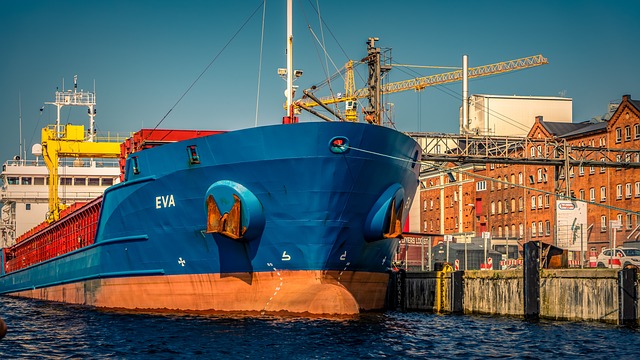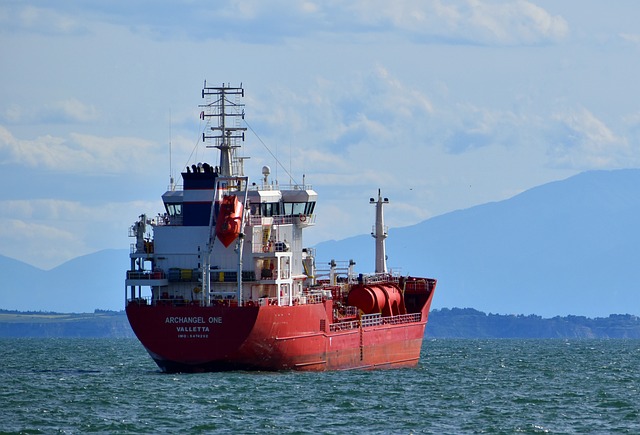Customs and Trade Documents UK translation services are essential for businesses navigating international trade regulations. Professional translators ensure accurate documentation, adhering to HMRC standards and industry terminology, to prevent customs delays or errors. These services specialize in complex documents like invoices and certificates of origin, facilitating smooth operations within the UK market. Choosing a reputable service with native-level translations, timely turnarounds, and expertise in UK customs procedures is crucial for compliance and efficient global supply chain communication. Advanced technologies, including AI, are revolutionizing digital customs translation, offering rapid, cost-effective solutions while maintaining accuracy and real-time tracking.
In the complex landscape of international trade, ensuring clarity in UK customs filings is paramount. This article guides you through the intricacies of UK customs requirements and highlights the pivotal role accurate translations play in seamless custom clearance. We explore common challenges, offer insights on selecting top-tier UK translation services, and share best practices for quality control. Additionally, we delve into emerging trends in digital customs translation services to help businesses future-proof their operations, ensuring compliance with evolving regulations.
- Understanding UK Customs Filings Requirements
- The Role of Accurate Translations in Custom Clearance
- Common Challenges in Customs Document Translation
- Choosing the Right UK Translation Services for Customs Documents
- Ensuring Quality and Compliance: Best Practices for Translations
- Future-Proof Your Business: Trends in Digital Customs Translation Services
Understanding UK Customs Filings Requirements

The UK’s customs filings require precise and accurate documentation, especially for international trade activities. Businesses engaged in importing or exporting goods across borders must ensure their customs and trade documents are up to standard. This is where professional translation services come into play; they offer a vital link in ensuring clarity and compliance. With complex regulations and technical terminology, it’s essential to have accurate translations of critical documents like commercial invoices, packing lists, and certificates of origin.
Customs and Trade Documents UK translation services should adhere to specific guidelines and standards set by the HM Revenue & Customs (HMRC). Professional translators must possess a deep understanding of both the source and target languages, along with expertise in the relevant industry terminology. This guarantees that every detail is conveyed correctly, avoiding potential delays or errors at customs checkpoints.
The Role of Accurate Translations in Custom Clearance

Accurate translations play a pivotal role in ensuring smooth customs clearance for goods entering or leaving the UK. With complex regulations and a vast array of required documentation, every word must be precise to avoid delays and potential fines. Custom and trade documents, including invoices, shipping manifests, and certificates of origin, require meticulous handling by professional translation services.
These specialized services employ language experts with deep knowledge of both business terminology and UK customs requirements. They ensure that vital information is accurately conveyed, reducing the risk of errors or misunderstandings that could hold up shipments at borders. Effective translations not only facilitate faster clearance but also help businesses comply with legal obligations, ensuring their operations remain efficient and compliant in the UK market.
Common Challenges in Customs Document Translation

Customs document translation in the UK can present several challenges, especially given the complexity and sensitivity of cross-border trade procedures. One of the primary hurdles is ensuring accuracy and consistency across multiple language versions of critical documents like invoices, shipping manifestos, and certificate of origins. Mistakes or discrepancies can lead to delays, fines, and even legal complications.
Another common challenge is keeping up with industry-specific terminology and regulatory requirements. Customs and trade documents often contain specialized terms that require precise translation to avoid misinterpretation. Furthermore, the UK’s engagement in global trade means that translators must be adept at dealing with a wide range of languages, from widely spoken European languages to less commonly used ones found in emerging markets. This necessitates the use of professional UK translation services specializing in customs and trade documents to guarantee flawless communication throughout the supply chain.
Choosing the Right UK Translation Services for Customs Documents

When it comes to customs and trade documents, accuracy and precision are paramount. Choosing the right UK translation service is crucial to ensure your filings are handled expertly and comply with all necessary regulations. Look for providers with a proven track record in translating customs documents, preferably those who specialize in this domain. This ensures that they possess the expertise required to navigate complex terminology and legal requirements.
Consider their experience with international trade documentation, their turnarounds times, and whether they offer native-level translations. Reputable services will have a team of professional translators who are not just skilled but also familiar with UK customs procedures. They should be able to deliver accurate, timely, and cost-effective solutions, enabling you to streamline your customs filings process.
Ensuring Quality and Compliance: Best Practices for Translations

Ensuring quality and compliance in translations for customs and trade documents is paramount to avoid delays, fines, or even legal issues at borders across the UK. When dealing with intricate paperwork, such as import declarations, safety data sheets, or technical manuals, precision and accuracy are non-negotiable. Reputable UK translation services employ a rigorous process that includes native linguists, expert subject matter specialists, and advanced technology to guarantee error-free translations.
Best practices involve providing clear instructions and context to translators, who must be fluent in both the source and target languages. This includes defining industry terminology and any regulatory or legal jargon specific to customs and trade documents. Additionally, implementing a review process with quality assurance checks ensures that the final translation is not only linguistically correct but also aligns perfectly with the original content’s meaning and intent.
Future-Proof Your Business: Trends in Digital Customs Translation Services

In today’s globalized trade landscape, businesses operating in the UK need to ensure their customs and trade documents are accurately translated to avoid delays and penalties. One trend that’s future-proofing operations is the rise of digital customs translation services. These services leverage advanced technologies like machine translation and artificial intelligence (AI) to deliver rapid, precise, and cost-effective solutions. AI-powered tools can handle a vast array of language pairs and terminologies specific to customs and trade, ensuring compliance with UK regulations.
Moreover, these digital platforms often offer real-time updates and tracking, allowing businesses to monitor the progress of their translations. This not only enhances efficiency but also provides peace of mind. With constant improvements in AI algorithms, these translation services are continuously becoming more accurate and capable of handling complex linguistic nuances in customs documentation, catering to the evolving needs of UK trade.
In ensuring smooth customs clearance, clarity in UK customs filings translations is paramount. By understanding the requirements, recognising common challenges, and selecting appropriate translation services, businesses can navigate the complexities of international trade efficiently. Adopting best practices and leveraging digital trends further enhance accuracy and compliance. When it comes to customs and trade documents UK translation services, investing in quality translates to faster processing, reduced delays, and a competitive edge in the global market.



